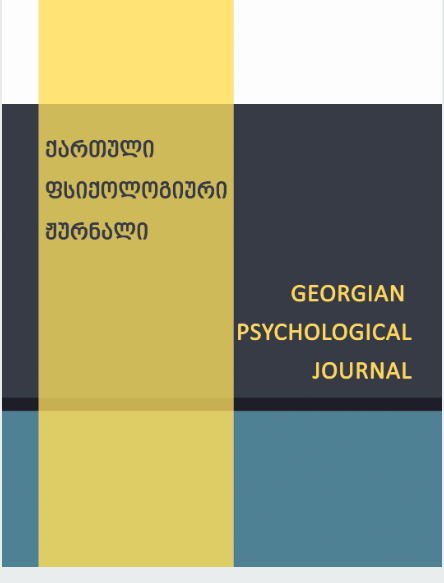GEORGIAN MIGRANTS IN GERMANY: BEING GEORGIAN – ETHNIC IDENTITY, INTRAGROUP AND INTERGROUP RELATIONSHIPS IN IMMIGRATION
Main Article Content
Abstract
The given article presents data analysis from the study concerning adjustment and integration of Georgians in a new social environment after their migration to Germany. Long-lasting political, social and economic instability following the disintegration of the Soviet Union, forced many citizens to immigrate to save their families. Outflow of the population is still the case. The number of immigrants from Georgia increased in the last three years (2014-2016). Migrants changed target countries from time to time. Later, EU countries became more attractive for Georgians. The given study examines intragroup and intergroup relationships of Georgians residing in Germany. The material has been provided by in-depth interviews conducted with the Georgian immigrants living in the host country for at least 10 years. The study examines adjustment to the new cultural environment, which involves the dynamics of the integration process, intragroup and intergroup stigmatization which is based on subjective perceptions, the strategies aimed at the reduction of cognitive dissonance and the maintenance of cognitive identity.
